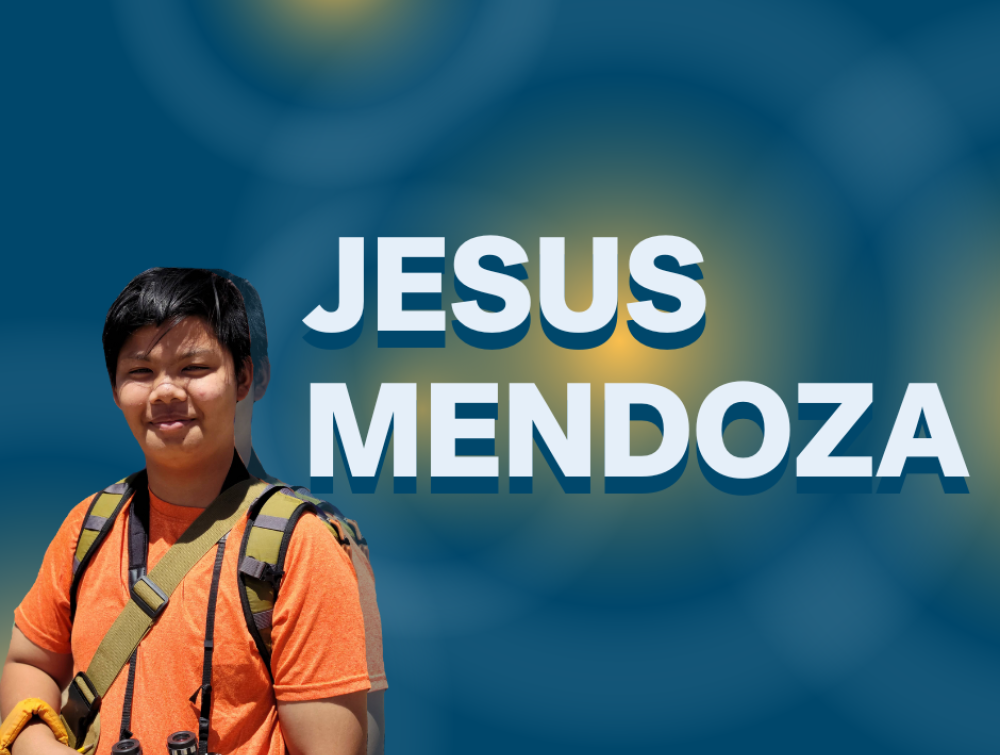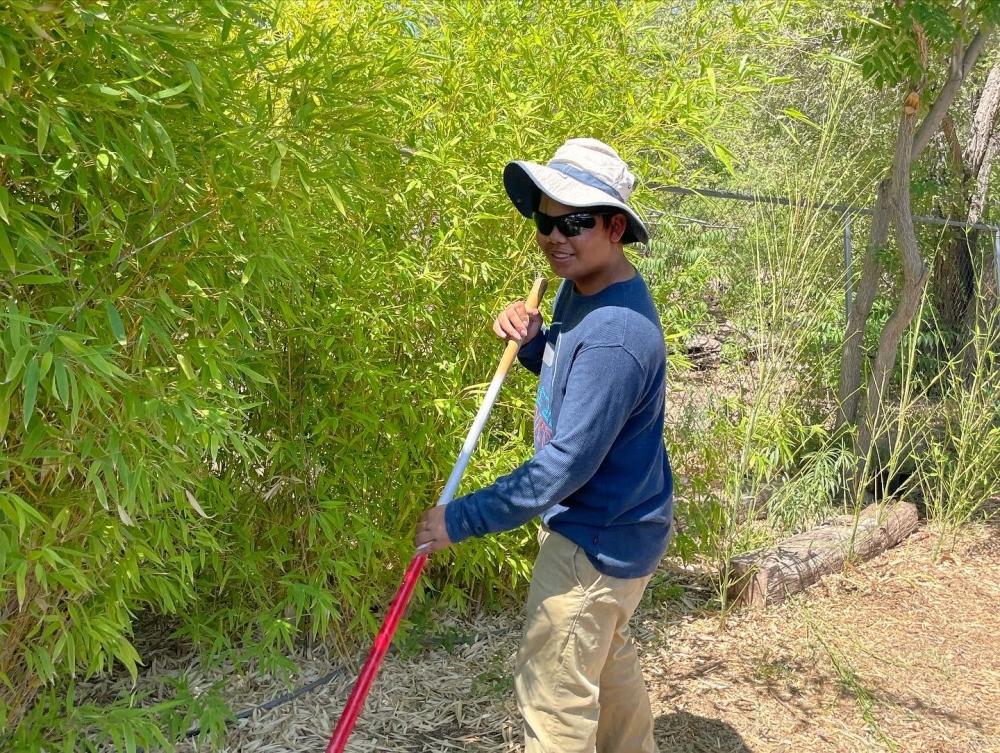"It’s a more breathable air here": Community shapes teen’s climate fight

Jesus Mendoza smiles while wearing camera gear
Ironwood Tree Experience
Perspective on pollution impacts sparked advocacy
On a 106-degree day in Tucson, Arizona, 16-year-old Jesus Mendoza observed that compared to where he used to live, this is a breath of fresh air.
“I grew up with asthma and the air around me can impact my health,” he said. And since moving here from Las Vegas a few years ago, he’s had an easier time.
Mendoza said the biggest reasons Las Vegas was so tough on his lungs were traffic, construction sites and pollution from factories. There’s also the matter of high ozone days. Ozone is an air pollutant and the main ingredient in smog. The right pollution and weather conditions can cause high levels of ozone near the ground, which can make asthma conditions worse. According to the American Lung Association, Las Vegas experiences an average of about 16 high ozone days per year, compared to four in Tucson. Fewer days experiencing this extra burden can make all the difference.
It was also after moving to Arizona that Mendoza gained a new perspective on how air pollution impacts communities. About a year ago, he started interning with Ironwood Tree Experience's Youth for Blue Skies Program after hearing about it from his environmental science teacher. It organizes youth storytelling workshops in the Sonoran Desert that focus on climate change and air pollution.
Mendoza interviewed community members about how pollution affects them. This culminated with him sharing the collection of interviews at a symposium hosted by Ironwood Tree Experience, for even more Tucson residents to learn from his community's experiences.
These conversations spurred Mendoza to advocate for public transportation as a way to reduce air pollution. For those who have access to it, public transportation emits fewer climate-changing greenhouse gases than private cars and can also be a cheaper alternative to driving. His advocacy has included speaking at a Tucson city council meeting to keep public transportation free in Tucson. When asked about this experience, Mendoza shared, “I feel really connected to the community because our voices can actually be heard here, and we can stand up for what we believe in.”

Jesus Mendoza and a friend stand outside smiling as they both point at a map
Planting trees for “shade equity” can mitigate extreme heat effects
While Mendoza has found the air in Tucson to be more breathable than in Las Vegas, there’s no doubt that people here face many environmental threats and challenges.
Summer temperatures in Tucson average about 101 degrees Fahrenheit, with record highs as hot as 117 degrees. “Sometimes we get less rain than other years and a lot of our plants die because of the heat. It is really hot outside to a point where sometimes you can't even go outside to our patio,” said Mendoza. Unfortunately, climate change is driving hotter and more frequent heat waves. In 2020, the city of Tucson even declared a climate emergency after a record dry and hot summer.
This kind of heat hits especially hard without shade. But because of environmental racism, there are generally more trees in white, affluent communities than communities of color. This is one of the main reasons why Black and Latinx urban neighborhoods are disproportionately exposed to the effects of extreme heat and urban heat islands.
But Mendoza and others are working to address that: “Our goal is to get a million trees planted by 2030 to make a Tucson with shade equity,” meaning equal access to tree-shade regardless of social standing. He is doing that through an organization called Tucson Clean and Beautiful. Planting trees also provides a way for Mendoza to meet members of his community. “Not only does it not cost anything to go plant a tree, but it's helping every neighborhood in Tucson.”
“The more help we get from each other … the more we can spread awareness of climate change and help reduce that climate change together.”
Mendoza is now a mentor at the same Ironwood Tree Experience program where he conducted community interviews about pollution impacts. Not only is it a fun opportunity to be around people with shared interests, but it’s a way to keep building his network and create positive change around Tucson by helping people tell their stories. “With the organizations I volunteer with, we can go from community to community to help each other and make sure our planet is getting better instead of worse,” he said.
In the years to come, Mendoza hopes to stay in Tucson, plant more trees, go to the University of Arizona to get a degree in environmental science and continue being an advocate for public transportation.
“As we encourage each other and get those ideas out there, that brings a lot of hope to me in continuing the work I've been doing,” said Mendoza. When asked about his dream role, he said continuing to work with the city council in the future is one way he can help his community members be heard and better the environment.
As for the future of our climate, Mendoza likes to stay optimistic. “I'm going to say [the environment] will get better because the more help we get from each other and the more support we have from the government, the more we can spread awareness of climate change and help reduce that climate change together. It's something that we can all benefit from to have a healthier, better life than what we have right now.”
Jesus Mendoza's story is part of a collection in “5 Stories: Resistance in the era of fossil fuels and climate change” where we talk to community members organizing, rallying and fighting back against the various stages of the fossil fuel lifecycle, from the point of oil and gas extraction to the climate extremes it creates.
